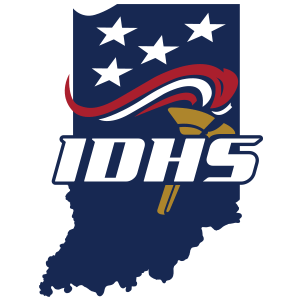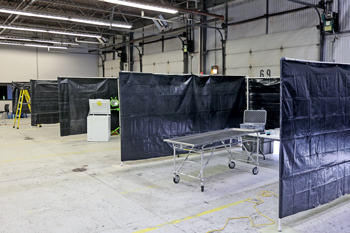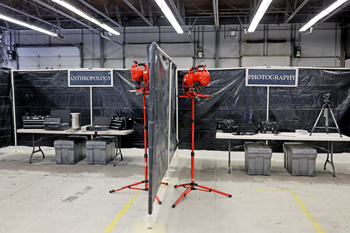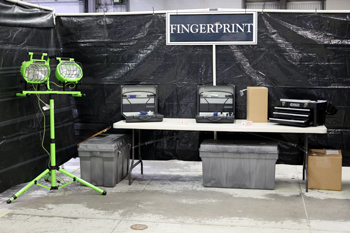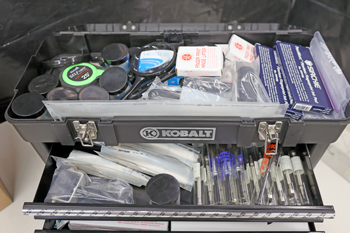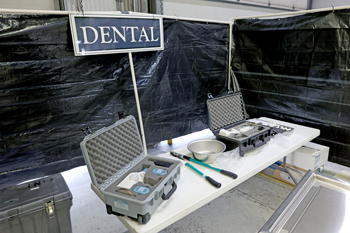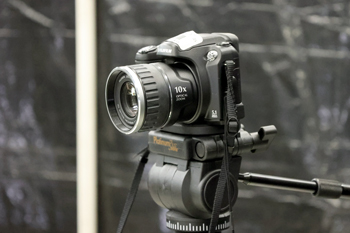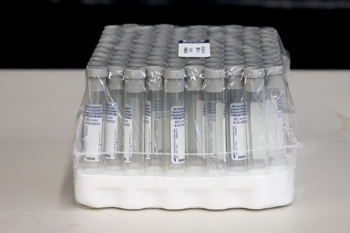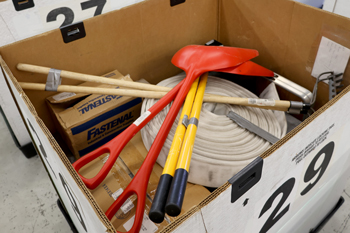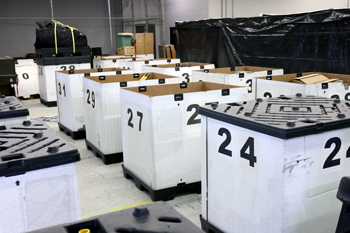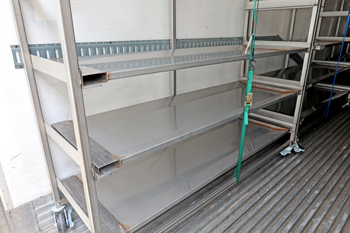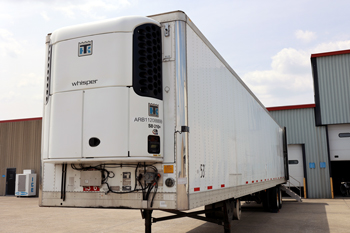IN-MORT Teams
Volunteers from across Indiana have offered their availability to form teams that can deploy as needed for mass fatality incidents. These include (not an exhaustive list):
Many of the volunteers work for IDHS or other state agencies, but more are needed to ensure coverage statewide. If you have skills that may be helpful for one of the teams, please complete the volunteer interest application below. Please note that you do not necessarily need a medical or forensic background to assist; other skills and backgrounds are needed.
- Morgue Information Center (MIC) Team
The MIC team is responsible for the collection of postmortem data from the forensics team. The MIC team then takes the data from both the forensics specialists and VIC team and works to establish matches between the human remains and personally identifying information. This involves use of computer technology, but the requesting coroner retains the authority to make all final determinations.
- Victim Identification Center (VIC) Team
The VIC team is responsible for establishing a victim identification center, which would typically be set up away from a mass fatality incident site. The center would focus on obtaining antemortem data, which is the gathering of information from family members and others that can help in the identification of a person's remains.
- Morgue Forensics Team
The forensics team is responsible for processing human remains at different stations: radiology, pathology, fingerprinting, odontology (teeth), anthropology (bones) and DNA. X-ray machines, photographic equipment and embalming equipment are also utilized.
Indiana State Police lab personnel and crime scene technicians typically staff the DNA and fingerprinting stations. The fingerprints are done with the traditional ink and cards, not digitally.
- Morgue Processing Team
The processing team provides security for the human remains and associated records. Members of the team accompany each set of remains through the different forensics stations and complete related paperwork.
- Remains Recovery Team
The remains recovery team conducts recovery efforts for human remains at the incident site. This may include setting up a grid system at the scene, locating remains and documenting the remains in multiple ways, such as by GPS and photography.
- Disaster Portable Mortuary Unit (DPMU) Team
The DPMU team is responsible for setting up and managing the cache of equipment and supplies. It is also responsible for the logistical needs and requirements of personnel working in the DPMU. The goal of this operational team is to have the morgue operational with 24 hours of an approved deployment request.
The current DMPU equipment can support refrigeration of more than 80 sets of human remains. Forthcoming expanded capabilities will allow support of 140 sets.
